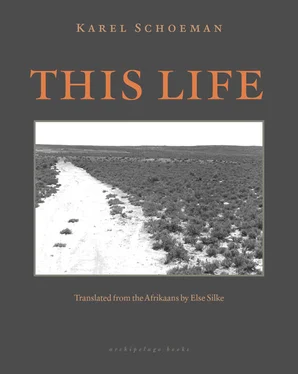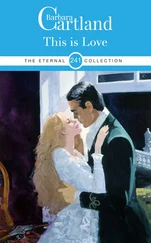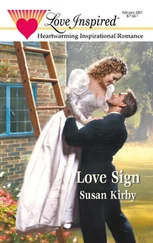Karel Schoeman - This Life
Здесь есть возможность читать онлайн «Karel Schoeman - This Life» весь текст электронной книги совершенно бесплатно (целиком полную версию без сокращений). В некоторых случаях можно слушать аудио, скачать через торрент в формате fb2 и присутствует краткое содержание. Год выпуска: 2015, ISBN: 2015, Издательство: Archipelago, Жанр: Современная проза, на английском языке. Описание произведения, (предисловие) а так же отзывы посетителей доступны на портале библиотеки ЛибКат.
- Название:This Life
- Автор:
- Издательство:Archipelago
- Жанр:
- Год:2015
- ISBN:978-0-914671-16-9
- Рейтинг книги:5 / 5. Голосов: 1
-
Избранное:Добавить в избранное
- Отзывы:
-
Ваша оценка:
- 100
- 1
- 2
- 3
- 4
- 5
This Life: краткое содержание, описание и аннотация
Предлагаем к чтению аннотацию, описание, краткое содержание или предисловие (зависит от того, что написал сам автор книги «This Life»). Если вы не нашли необходимую информацию о книге — напишите в комментариях, мы постараемся отыскать её.
considers both the past and future of the Afrikaner people through four generations of one family. In an elegiac narrator's tone, there is also a sense of compulsion in the narrator's attempts to understand the past and achieve reconciliation in the present. This Life is a powerful story partly of suffering and partly of reflection.
This Life — читать онлайн бесплатно полную книгу (весь текст) целиком
Ниже представлен текст книги, разбитый по страницам. Система сохранения места последней прочитанной страницы, позволяет с удобством читать онлайн бесплатно книгу «This Life», без необходимости каждый раз заново искать на чём Вы остановились. Поставьте закладку, и сможете в любой момент перейти на страницу, на которой закончили чтение.
Интервал:
Закладка:
Years later, when Maans was a young man and he opened the Bible to record Father’s death, he read through all the entries. “But this is your handwriting,” he said to me. “Why did you write in the Bible when Mammie died?”
It was a rainy day and it was even darker than usual in the voorhuis: Mother sat close to the window with her back to us, and I did not know whether she had heard the question. “Oupa was often ill during that time,” I said at last, and in the silence I heard the rain dripping through the thatched roof on to the floor-boards of the loft; and it was true that he was frequently ill in the time after Sofie and Pieter left us, even confined to his bed at times, but that was not why he had not entered the date into the Bible himself. He had probably never even seen the inscription, for the next entry in the family tree was his own death, so he had had no reason ever to look it up.
How long did that silence last? Father immersed in his pain and Mother in her bitterness, Jacomyn distant and waiting in the house where she was merely tolerated, and Dulsie gradually becoming old and grumpy, and the only sound the wind outside, the whirling dust against the shutters, and the wailing of the baby as Jacomyn paced up and down with him, shuffling across the floor on bare feet. How long could it have lasted? Oh, long, very long; months passed and eventually became years, seasons of blustering snow and uncertain springs drifted across the veld, and the only sound was the wind against the shutters. My only company was the servants as I sat unnoticed in the corner of the kitchen in the evenings, the silent listener in the corner, and sometimes entire days passed during which no one thought to address me except to give me an order or to scold me for some oversight. It was autumn and the wind whipped the dust across the veld, so that the shutters were closed and we lived in the dark with only the fire in the kitchen glowing in the hearth; the darkness and the silence, the rattling of the doors and shutters in the wind and the grating noise as the wind swept along dust and fine pebbles and branches, and the child crying, and Jacomyn’s bare feet across the dung floor. I was often alone, and in my childhood years loneliness gradually became second nature to me. Sometimes I wandered far from home without knowing what I was looking for, driven farther and farther, gazing at the faded, flat landscape from every ridge, as if I were searching for something. But what did I expect to see? Dassies slipping away among the rocks when they saw me, or a jackal buzzard rising from its prey to hover in the air on outstretched wings, the sheep flocks grazing among the bushes or the wispy smoke of a herdsman’s lonely fire at his shelter miles away, or at most a lone rider, unrecognisable across the distance, or the white tent of a wagon on the distant mountain pass, strangers passing by our isolated homestead without even considering turning off and paying us a visit in our isolation. I did not expect company, however, neither did I desire the arrival of strangers in our midst; I turned from the distant road and chose places where not even the sheep went, and I walked farther and farther as if I were heading for some distant destination. I saw the low hills darken and the renosterbos glow with a bluish tinge as the thin silver sunlight faded at the end of the day, and in my fervour to reach that mysterious distant goal, I began to run, stumbling along the plateau on the crest of the mountain at the end of the world. The silver light streamed away before my eyes and I lost my footing on the uneven ground.
One of the herdsmen apparently found me there in the veld. Whether they had been searching for me and whether they had been anxious or worried about my disappearance, or for how long I had lain there before he found me, I have no idea. I fell, I suppose — what does it matter now, except for the scar on my forehead, and I learned to live with that a long time ago. Near the edge of the escarpment he found me, far from home, but that is all I know. When I regained consciousness, it was night, and by the light of the oil lamp I could make out among the flickering shadows in the room old Dulsie where she sat sleeping on a chair beside my bed; and then it was dark again. Of course it could not have been so very long, those months of emptiness and silence in the empty, silent house; it was autumn when Pieter and Sofie left and not yet winter when they found me in the veld, near the end of autumn it must have been, for my illness had once again prevented Mother from going down to the Karoo with Father, and we had to stay behind in the Roggeveld. I suppose Gert went with Father, and perhaps Jacomyn and the child as well, and Dulsie must have stayed behind to help Mother. Or did Mother go with Father after all, leaving me behind with Dulsie? I was sick all winter and unconscious or delirious most of the time, so that my memories of those months are vague and confused, but I do not remember Mother being there, only that Dulsie was always beside me with a kaross around her shoulders against the cold and her feet on a stove, or curled up on the floor in front of the bed at night; Dulsie holding me, trying to make me drink from a bowl, Dulsie throwing open the shutters that had been closed against the cold and letting the first pale daylight of spring into the room.
Why do I not remember Mother? The more anxiously, the more deeply I delve into my confused memories, the more they slip and slide away, but not for a moment can I find her face anywhere. There is no one I might ask about it any more, and yet I realise that sixty years later it is still important to me, I still want to know whether Mother left me or stayed with me and whether she showed any sign of anxiety or concern during my long illness. How dearly I would like to discover her among the fragments of my memories, bending over my bed for a moment, her hand on my brow, her arm around my shoulders; but it is only Dulsie I see before me. Who helped her then? Sofie I remember, bending over the flickering light, her face recognisable for just a moment, and then her dark hair like a veil, hiding it from view, obscuring her features; Sofie — but no, that was a different time, it is an older memory, and if I had seen her during this time, bending over my bed in the candlelight, an inscrutable look in her dark eyes, if I had seen her, then it must have been an illusion, a shadow, a distortion created by the darkness on the walls of the room where I lay.
Dulsie’s head sinks forward in her vigil beside the bed, she nods for a moment as she dozes off, then sits up abruptly, bewildered, looking around her, uncertain of her whereabouts. Then slowly, mumbling to herself, she gets up and arranges her bed on the floor, and against the wall her distorted shadow joins the other shadows, lengthening and shrinking, extending and flowing together in fluid patterns. The dancing light of the flame, flickering for a moment in the wind, and the smell of the kraal and the veld, the smell of fire made with bushes and dung, of dung fire and smoke and herbs. Why do I remember that smell, and how did it find its way into my room where the shutters were closed against the cold and where we lived in eternal half-light and candlelight and darkness? The smell of smoke and bushes, the smell of boegoe and soil and dust, and a hand on my forehead that was not Dulsie’s. Could it perhaps have been Mother, Mother after all? But no, a strange hand, and strange voices murmuring in the dark. Who was that stranger — the wife of a herdsman who had slept in the house with Dulsie during that long winter? I do not remember anyone who resembled her, however, neither was she like the Basters or Hottentots of our parts. On some of the farms in the Roggeveld there were still Bushmen from the days of the raids and battles before my birth, when the men were killed and the surviving women and children herded together and put to work by the white farmers, and it seems as if it could be an old Bushman woman that I remember; but we never had any of these people in our employ except as herdsmen, and they would never have been allowed inside the house. It is possible that it was an illusion, one more illusion among the many that merge with the shadows, and yet I know it was not my imagination, and that I saw her here in my bedroom, beside my bed, with her hand on my brow, and I remember the muttering of strange voices and the smell of bushes and herbs and kraal fires.
Читать дальшеИнтервал:
Закладка:
Похожие книги на «This Life»
Представляем Вашему вниманию похожие книги на «This Life» списком для выбора. Мы отобрали схожую по названию и смыслу литературу в надежде предоставить читателям больше вариантов отыскать новые, интересные, ещё непрочитанные произведения.
Обсуждение, отзывы о книге «This Life» и просто собственные мнения читателей. Оставьте ваши комментарии, напишите, что Вы думаете о произведении, его смысле или главных героях. Укажите что конкретно понравилось, а что нет, и почему Вы так считаете.












